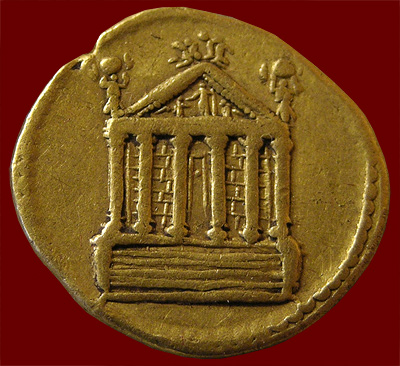

In about 110 CE, Annia Galeria Faustina married T. Aurelius Fulvus Boionius Arrius Antoninus, who would later be adopted by the emperor Hadrian and become the emperor Antoninus Pius when Hadrian died in 138 CE. The new emperor was devoted to his young wife, and the Senate voted her the title Augusta and the right to have coins minted in her name. Of the four children she had borne him, only a daughter, Faustina the Younger, survived to adulthood, and the empress herself died late in 140 or 141 CE. Some of the coins of Antoninus Pius celebrate the harmony of their marriage, such as this denarius with the word CONCORDIAE:
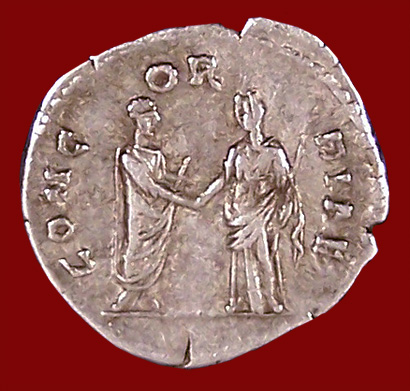
After her death, he had the Senate deify her and vote her a temple and priestesses, and he issued a remarkable series of coins commemorating her deification. Most of these bear her portrait on the obverse, like the aureus above, with the inscription DIVA FAVSTINA, and the reverses detail the events of her consecration. This aureus depicts her elaborate four-tiered funeral pyre, topped with a four-horse chariot (quadriga):
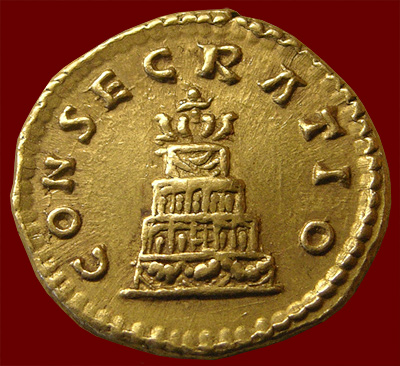
After this imperial send-off, Faustina is shown being conveyed to Olympus in a quadriga:
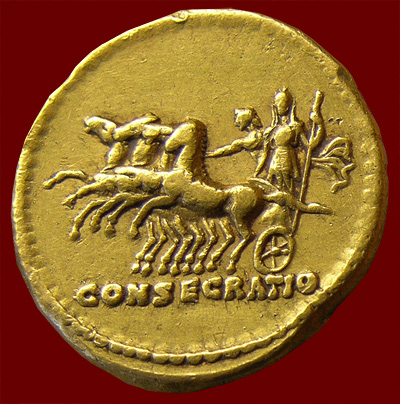
The following coin depicts a statue of the now-deified empress holding a spear and wheat being conveyed in a wagon pulled by two elephants; the inscription reads "by decree of the Senate":
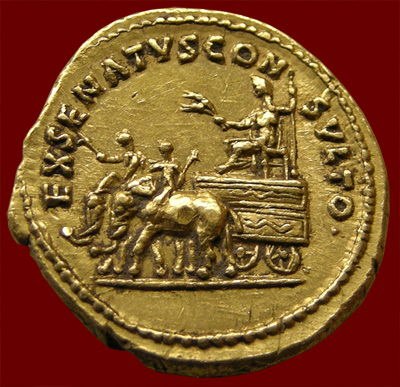
The last coin illustrates the temple that Antoninus Pius built along the Sacra Via on the northeastern side of the Roman Forum for the ongoing worship of Diva Faustina:
